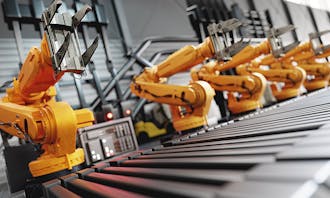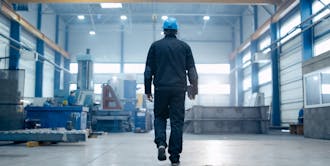- Home >
- Interviews >
-
Richard Thompson
Richard Thompson - Alvant
2020-06-24
3 min read

Q. Can you give me an overview of Alvant and how it was founded?
Alvant designs, develops and manufactures bespoke advanced materials, particularly aluminium matrix composites (AMCs), for industries such as transport, defence and energy.
Since 2003, we’ve been exploring the potential of liquid pressure forming (LPF) to develop advanced materials that are sustainable and improve product performance. This was then superseded by our advanced liquid pressure forming (ALPF) — a process that combines aluminium with a secondary high-performance material, such as alumina fibre. The final product is a high-performance AMC material for use in applications where conventional metals would limit the product’s performance.
Nearly ten years later, we’ve grown to a team of 19, experienced in industries including aerospace, automotive and materials science, to ensure we produce the best materials for our clients.
Q. What are the company’s main products or services?
Our AMCs are a family of materials whose specifications can be tailored to suit a range of applications. We have particular expertise in developing continuous fibre reinforced AMCs, lightweight aluminium foams and particle reinforced AMCs. These materials are a good alternative to carbon composites, titanium and steel because of their greater strength, higher stiffness, lower weight, superior wear resistance and tailorable coefficients of thermal and electrical conductivity. Aluminium is also readily available, recyclable and it can be a very good sustainable alternative to commonly used metals.
We classify our AMCs in four families — AlXal, ParXal, AerXal and CorXal. Each material has different properties, for example AIXal is our strongest material, AerXal is the best material to produce lightweight components and CorXal is a multi-phase AMC with ultra-high stiffness and a very low density – similar in concept to a sandwich material with a two “skins” and a lightweight “core” in the middle.
Aerospace and automotive industries are the two main sectors that currently use our materials because of their strength and flexibility. Businesses can also use our materials to produce robust goods such as mobile devices, biomechanical prosthetics and wheelchairs.
”
We believe that Alvant’s aluminium matrix composites will soon replace traditional carbon-based composites.
”
Q. What is the greatest challenge that the company overcame?
Carbon and Glass fibre have always been the most popular materials used to produce composites. So, when we started to develop and refine AMCs, we had to prove the advantages of using a material that is not often associated with high-tech applications.
At first, we struggled to control the metallurgical and chemical reactions, temperatures and pressures needed to combine aluminium with other materials. We were eventually able to develop a repeatable process to help scale up operations and the experience helped our engineers to better understand the capabilities of AMCs and develop better materials for our clients.
Q. What is the main innovation you bring to the market?
Alvant started because many industries were looking for alternatives to traditional composite materials that lacked the strength-to-weight ratio, fatigue and damage tolerance and thermal operating capability required for high-performance applications such as aircraft landing gear.
Aerospace engineers can use our aluminium-based materials to build the same landing gear that is 40 per cent lighter than titanium counterparts and also more sustainable and recyclable.
Q. How do these materials tie into the growing use of automation?
Industries that we work with, such as transport, defence and energy are always looking for ways to develop technology that is smarter and faster.
Take gripper technology as an example. Fitting an industrial robot with lighter and more stable end-of-arm tooling allows manufacturers to increase the speed of pick and place applications by reducing weight, without compromising on accuracy or repeatability. The increased wear resistance also helps reduce maintenance costs and out-of-service time.
We believe that Alvant’s aluminium matrix composites will soon replace traditional carbon-based composites because of its environmentally friendly properties, wider thermal operating range and fatigue and damage tolerance in a variety of applications.
Sign up for updates.
Try these
You might also like

Interview
John Young - EU Automation
Implementing an automation system without first thoroughly planning your approach can be a very risk...

Interview
Neil Ballinger - EU Automation
Have a plan to manage the risks. Planning ahead rather than reacting to failures gives you a competi...

Interview
Jon Brewin - AutoStore
AutoStore is the cube storage pioneer, inventing the technology and using the last few decades to pu...



